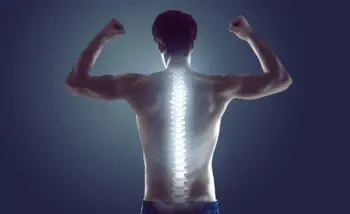Meet the Experts
Dr. Schuler introduces the panel of four top spine specialists: Dr. Shea Bess from Colorado, Dr. Chris Shaffrey from Duke, Dr. Manish Gupta from Washington University, and Dr. Sig Bervin from UCSF. These specialists are here to help us understand various treatment options for spinal health.
Scoliosis Research Society
Dr. Chris Shaffrey, currently the President of the Scoliosis Research Society (SRS), provided insights into the purpose and history of their meetings. About 25 years ago, the SRS established the International Meeting on Advanced Spine Technology (IMAST) to discuss new techniques and technologies in their early stages. The goal of these meetings is to ensure that new advancements truly benefit patients.
Evolution in Spinal Surgery
Dr. Manish Gupta shared his experience and observations in the field over the past 30 years. He noted significant advancements from the initial use of Harrington rods to modern segmental systems for spine treatment. The Harrington system was revolutionary for its time, designed to treat polio patients.
Nowadays, multiple generations of spinal systems are in use, dramatically improving the efficiency and efficacy of treatments. This evolution has led to a focus on not just the correction of spinal deformities but also on improving overall patient outcomes.
Understanding Disabilities and Advances
Dr. Sig Bervin explained the complexities of spinal deformities like scoliosis and their impact on patients’ lives. Spinal deformity involves not just a curvature but malalignment that can cause significant pain and loss of function. The field’s advancements now allow for effective realignment of the spine, enhancing patients’ quality of life.
Moreover, current focus includes not only on physical correction but understanding the types and extents of disabilities and how these affect patients. By capturing data on patients’ experiences and outcomes, doctors can tailor treatments more effectively.
The Role of Data Collection
Dr. Shea Bess highlighted the importance of segmental fixation and data collection in improving patient outcomes. Segmental fixation involves using multiple points of fixation along the spine, which allows for better correction of deformities. Advances in assessing patient disabilities and the precise quantification of their impact have helped surgeons make better treatment decisions.
Collecting data on patient outcomes, including their perceptions of their disabilities, has become crucial in developing personalized treatment plans that address both physical and mental health concerns.
Advances in Technology and Patient-Centered Care
The panel discussed the remarkable technological advances that have revolutionized spinal surgery. Dr. Gupta emphasized the role of screening, prehabilitation, and the use of advanced monitoring and bone graft substitutes in making spine surgery safer and more effective.
Dr. Bervin added that new materials and implants now allow for better control and realignment of the spine. These advancements, combined with a deep understanding of patient expectations and outcomes, have made today the best time for spinal deformity surgery.
Closing Thoughts
In conclusion, the panel shared their collective wisdom and experience on improving spinal health. They emphasized the importance of patient-centered care, asking questions, and seeking multiple expert opinions. Dr. Schuler underscored the value of research in refining techniques and improving outcomes. He encouraged patients to feel empowered and informed when making decisions about their spinal health.



